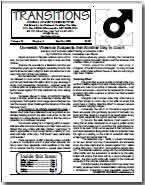This is probably not the news most fathers want to hear.
Testosterone, that most male of hormones, takes a dive after a man becomes a parent. And the more he gets involved in caring for his children — changing diapers, jiggling the boy or girl on his knee, reading “Goodnight Moon” for the umpteenth time — the lower his testosterone drops.
So says the first large study measuring testosterone in men when they were single and childless and several years after they had children. Experts say the research has implications for understanding the biology of fatherhood, hormone roles in men and even health issues like prostate cancer.
“The real take-home message,” said Peter Ellison, a professor of human evolutionary biology at Harvard who was not involved in the study, is that “male parental care is important. It’s important enough that it’s actually shaped the physiology of men.”
“Unfortunately,” Dr. Ellison added, “I think American males have been brainwashed” to believe lower testosterone means that “maybe you’re a wimp, that it’s because you’re not really a man.
“My hope would be that this kind of research has an impact on the American male. It would make them realize that we’re meant to be active fathers and participate in the care of our offspring.”
The study, experts say, suggests that men’s bodies evolved hormonal systems that helped them commit to their families once children were born. It also suggests that men’s behavior can affect hormonal signals their bodies send, not just that hormones influence behavior. And, experts say, it underscores that mothers were meant to have child care help.
“This is part of the guy being invested in the marriage,” said Carol Worthman, an anthropologist at Emory University who also was not involved in the study. Lower testosterone, she said, is the father’s way of saying, “ ‘I’m here, I’m not looking around, I’m really toning things down so I can have good relationships.’ What’s great about this study is it lays it on the table that more is not always better. Faster, bigger, stronger — no, not always.”
Experts said the study was a significant contribution to hormone research because it tested men before and after becoming fathers and involved many participants: 600 men in the Cebu Province of the Philippines who are participating in a larger, well-respected health study following babies who were born in 1983 and 1984.
Testosterone was measured when the men were 21 and single, and again nearly five years later. Although testosterone naturally decreases with age, men who became fathers showed much greater declines, more than double that of the childless men.
And men who spent more than three hours a day caring for children — playing, feeding, bathing, toileting, reading or dressing them — had the lowest testosterone.
“It could almost be demonized, like, ‘Oh my God, fathers, don’t take care of your kids because your testosterone will drop way down,’ ” said Lee Gettler, an anthropologist at Northwestern University and co-author of the study, published in The Proceedings of the National Academy of Sciences. “But this should be viewed as, ‘Oh it’s great, women aren’t the only ones biologically adapted to be parents.’
“Humans give birth to incredibly dependent infants. Historically, the idea that men were out clubbing large animals and women were staying behind with babies has been largely discredited. The only way mothers could have highly needy offspring every couple of years is if they were getting help.”
Smaller studies, measuring just snapshots in time, found fathers have lower testosterone, but they could not establish whether fatherhood brought testosterone down or lower-testosterone men were just more likely to become fathers.
In the new study, said Christopher Kuzawa, a co-author and Northwestern anthropologist, having higher testosterone to start with “actually predicted that they’re more likely to become fathers,” possibly because men with higher testosterone were more assertive in competing for women or appeared healthier and more attractive. But regardless of initial testosterone level, after having children, the hormone plummeted.
Scientists say this suggests a biological trade-off, with high testosterone helping secure a mate, but reduced testosterone better for sustaining family life.
“A dad with lower testosterone is maybe a little more sensitive to cues from his child, and maybe he’s a little less sensitive to cues from a woman he meets at a restaurant,” said Peter Gray, an anthropologist at the University of Nevada, Las Vegas, who has conducted unrelated research on testosterone in fathers.
The study did not examine specific effects on men’s behavior, like whether those with smaller drops in testosterone were more likely to be neglectful or aggressive. It also did not examine the roles played by other hormones or whether factors like stress orsleeplessness contributed to a decline in testosterone.
Other studies have suggested, though not as definitively, that behavior and relationships affect testosterone levels. A study of Air Force veterans showed that testosterone climbed back up after men were divorced. A study of Harvard Business School students found that those in committed romantic relationships had lower testosterone than those who were not. Another study found that fathers in a Tanzanian group known for involved parenting had low testosterone, while those from a neighboring culture without active fathering did not.
Similar results have been found in birds and in mammals like marmosets, said Toni Ziegler, a senior scientist at the Wisconsin National Primate Research Center.
Experts say the new testosterone study could offer insight into men’s medical conditions, particularly prostate cancer. Higher lifetime testosterone levels increase the risk of prostate cancer, just as higher estrogen exposure increases breast cancerrisk.
“Fathers who spend a lot of time in fathering roles might have lower long-term exposure to testosterone,” reducing their risk, Dr. Ellison said.
Many questions remain. Does testosterone, which appeared to decline most steeply in fathers during their child’s first month, rebound as children become older and less dependent? How often do levels fluctuate?
They did not change before and after a play session with children, researchers found. But do they rise when fathers are at work and decrease on weekends? And are only biological fathers affected, or would similar results occur “if you have an uncle or brother or stepfather living in the household and they care for the baby?” asked Sarah B. Hrdy, the primatologist and author of “Mothers and Others.”
The lowering of their testosterone did not prevent the men in the study from having more children. “You don’t need a lot of testosterone to have libido,” Dr. Kuzawa said.
“If guys are worried about basically, ‘Am I going to remain a guy?’ ” Dr. Worthman said, “we’re not talking about changes that are going to take testosterone outside the range of having hairy chests, deep voices and big muscles and sperm counts. These are more subtle effects.”
And, as Dr. Gray wrote in a commentary accompanying the study, “The descent of a man’s testosterone may even be welcomed by some, perhaps his progeny.”
Source: In Study, Fatherhood Leads to Drop in Testosterone (USA) (http://www.nytimes.com/2011/09/13/health/research/13testosterone.html?_r=2&nl=todaysheadlines&emc=tha23)


